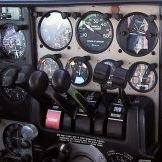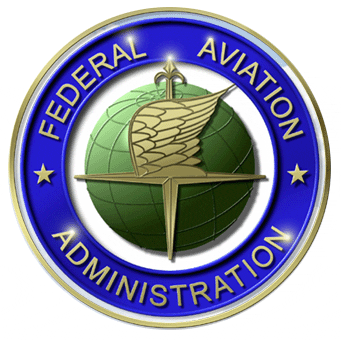 November 6, 2007
November 6, 2007
From Peter Greenberg Worldwide Radio…
PETER, LATELY
Finally, I can say, “Sorry, but summer’s over.” Daylight Savings Time said, “Buh-bye,” over last weekend.
Two weekends ago, after my show from Fire Island in New York aired, I hopped onto a plane … gee, what a surprise for me.
I was in New Hampshire, then Atlanta, then Dallas, on my book tour for my book, The Complete Travel Detective Bible, which I hope you’ll get a chance to read. I’ll be visiting lots of cities, and if you can make it to a book signing, I’d love to say, “Hi.” We’ll have some fun, and I’ll answer some questions live, right in your own communities.
THE CRASH OF THE DASH-8
(Editor’s note: On Thursday, February 12, 2009, a Dash 8 Q400 Bombardier aircraft crash-landed on a home near Buffalo, New York, killing all 49 people aboard and one person in the home. Click here to read more.)
Now, shifting to a more serious note, an incident happened in Denmark that I want to share with you. It didn’t get a lot of play in the press in this country, but it has a far-reaching impact, and it gives you an idea of what our government does and doesn’t do, and what it should and shouldn’t do.
On October 27 in Denmark, a plane—a Dash 8 or Q400—operated by Scandinavian Airlines (SAS) crash-landed. Now, no one was killed, and that was a good thing. The plane, of course, was seriously damaged, and that in itself is not earth-shattering news.
However, put into total context, it really has some significance because it was the third crash within three months of that kind of plane for the exact same reason. Apparently—emphasis on the word “apparently”—something very defective is wrong with its landing gear.
 And here’s the interesting part of the story: In an unprecedented meeting, the Board of Directors of SAS made a decision. They’re going to dump the plane. In fact, they’ve announced that they’re no longer going to fly the plane at all. So they’ve grounded their own plane.
And here’s the interesting part of the story: In an unprecedented meeting, the Board of Directors of SAS made a decision. They’re going to dump the plane. In fact, they’ve announced that they’re no longer going to fly the plane at all. So they’ve grounded their own plane.
Think of the economic impact (especially considering that the company operated 27 Q400s), the schedule disruptions, but, more importantly, think of the message it’s sending to the rest of the aviation community and to you: Is this plane safe?
Apparently, according to SAS, it’s not.
Now, is the Dash 8 operated in this country? Yes, it is.
Frontier has a couple, along with Continental, Horizon Air in the Pacific Southwest has a lot, and even Qantas has them.
So an entire company, a substantial company of Scandinavians, is saying, “We have no faith in this plane, we’re grounding it, we’re taking that action ourselves.”
FAA IGNORES REAL PROBLEM BY NOT GROUNDING Q400
What did our crack FAA do? They issued an Air Worthiness Directive. That sounds pretty severe, doesn’t it?
Well, sometimes it can be severe, and sometimes it can’t. There are different kinds of Air Worthiness Directives. Some of them are in the form of what they call a “Service Bulletin,” which basically says, “You know, the next time you bring the plane in, you might want to check it.”
 The FAA didn’t issue that one, but they also didn’t issue the one they should have issued, which is “Effective immediately, this plane is grounded until you fix it.”
The FAA didn’t issue that one, but they also didn’t issue the one they should have issued, which is “Effective immediately, this plane is grounded until you fix it.”
No, they went the middle ground, basically saying to the airlines that operate the plane, “You’ve got until November 14th to check it out.”
Now I’m sorry, but you have three crashes within three months, presumably for the same reason. And you also have an airline—which I happen to think does a great job at maintenance—saying, “We don’t trust the plane. We’re grounding it.”
Don’t you think the prudent thing to do would be to take the plane out of service until you find out what’s wrong with it? No, they gave the company that manufactures the plane, Bombardier, ‘til November 14th to “check it out.”
This is what’s wrong with the FAA. Given the choice between safety versus economic impact, they always seem to side with economic impact.
And then, of course, our safety, or our potential safety, is in jeopardy. I get angry about this.
Because as far as I’m concerned, if you know there’s a problem, and it’s not just an isolated incident, and there seems to be an emerging pattern, you deal with it immediately. Or, in my book, this almost constitutes criminal negligence. No U.S. airlines have taken that plane out of service. I’m sure they’re inspecting them, I’m sure nobody wants to fly a defective plane, but that’s not the point here.
The point is: You ground it until you fix it. Especially when you already realize there’s a problem.
The only time we’ve ever grounded a plane in this country in recent memory was in 1979. Remember? It was the DC-10. And we also know what happened after they grounded the DC-10.
It spelled the end of MacDonald Douglas as we know it. That company doesn’t exist anymore, and I don’t think hardly anyone in this country is even flying DC-10s anymore.
Although I happen to think that when they fixed the problem, it became a safer plane. That’s not the issue, though. The issue is: If you got a problem, fix it.
That’s what the FAA is supposed to do. It’s supposed to enforce safety and make regulations, not side on the side of economic impact.
Do I sound like I’m a little angry? You betcha.
Taken from the Nov. 3 broadcast of Peter Greenberg Worldwide Radio (click for more info on Peter’s radio show).
Read more from Peter’s blog, the Travel Detective Files.
Or, check out our section on Travel Safety.
You can also check out this week’s top travel news.












